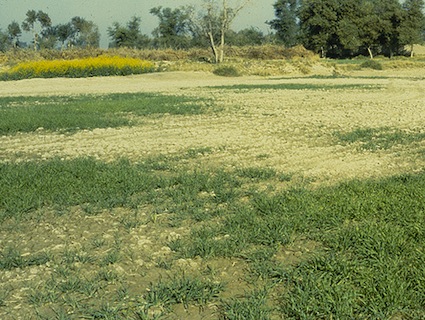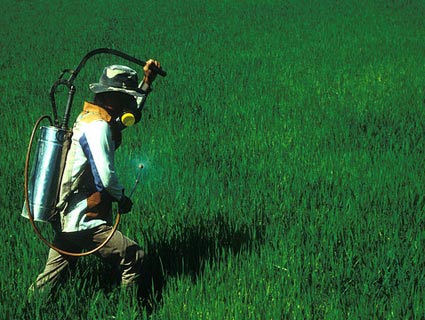
<a href="http://www.flickr.com/photos/theatrebhs/4497978559/">ISD 191</a>/Flickr
Blogging has been light this week because I’ve been on vacation. But I can’t resist commenting on something that made me choke on my coffee this morning. While reading a news report on superweeds—weeds that have developed resistance to Roundup herbicide, from widespread use of Monsanto’s genetically engineered Roundup Ready seeds—I came across this passage:
McNeill says that in the Midwest and other areas of the country, such as Louisiana and Mississippi, weeds like water hemp, giant ragweed, lamb’s quarter and velvet weed have become Roundup resistant through natural selection, due to a particular genetic mutation that survived the poison and therefore reproduced successfully and wildly.
Wait, ragweed, the scourge of Maverick Farms, the western North Carolina farm where I work? And lamb’s quarters, the “wild green” (ok, weed) that we harvest and really enjoy eating all summer? I avoid buying genetically modified foods at the supermarket. Are we unwittingly inviting them into our kitchen through the backdoor?
I’ve been writing about “superweeds” for years now. It turns out—as any agricultural expert could have predicted—that when you douse millions of acres of farmland with the same weed-killing chemical several times a year for a decade, some of those weeds develop resistance to the chemical (and eventually, to the other poisons farmers deploy in their desperate zeal to control them).
But I’ve always written about the problem with a certain amount of detachment—I assumed that the Monsantoization of weeds was something that happened somewhere else, to some other kinds of weeds (like Roundup-resistant Palmer amaranth, a “nightmare” haunting cotton country in the South), not to the ones we grapple with in the field or (gulp) eat. It’s true that not much industrial agriculture takes place in our mountainous area; but plenty takes place to the south and east of us. It’s conceivable, I suppose, that our own stock of weeds could have become infected with Monsanto’s gene, spread by pollen carried by birds and/or wind.
So, is our despised ragweed now genetically modified? Are our beloved lamb’s quarters now Roundup Ready? I’ll try to figure it out when I get back from vacation.
















